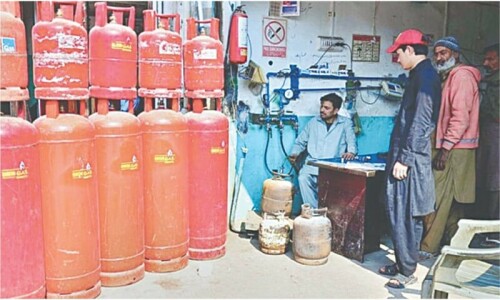
Punjab’s budget for the financial year 2017/2018 is expected to wear the appearance of a pre-election, populist budget with provincial officials projecting the total development outlay to grow by up to 10pc, to above Rs600 billion from this year’s Rs550bn.
“The next budget is going to be an election year budget full of populist initiatives to attract voters in the 2018 election,” an official involved in the budget-making process told Dawn last week.
The provincial fiscal operations show the government has spent 43pc, or Rs239bn, of the Rs550bn earmarked for the current year’s development programme.
Development investment for the current financial year was estimated at 37.5pc, bigger than the original estimates of Rs400bn including the core development spending of Rs333bn for the previous fiscal.
“The next year’s development programme will continue to target large-scale infrastructure and invest in agriculture, irrigation, energy, transport and the social sector to improve the economic growth rate, alleviate poverty and create jobs,” the official said.
Besides, the government plans to increase its allocations to provide subsidies to growers and the unemployed urban youth in order to woo them away from the ruling party’s opponents. More funds are being set aside next year for the poor living in south Punjab, the official added.
Officials said the province’s current expenditure was set to record a much higher growth next financial year compared with its development outlay because of the additional burden on the provincial resources on account of an estimated increase of Rs25bn/Rs30bn in its annual pension payments.
“Apart from certain election-related initiatives targeting specific segments of voters, the next provincial budget will have no major policy shift”
“The pension payments are projected to rise sharply owing to an ever increasing number of pensioners, as well as a court ruling that requires the government to pay (to the pensioners) all the (pension) raises allowed during the period for which (their) pensions are commuted and after restoration of the commuted portion (of their pensions),” another official said.
The provincial government had budgeted Rs850bn for its current expenditure during the outgoing year but the amount is projected to surge significantly next year.
“While we are expecting the development budget to rise by approximately a tenth, the current expenditure may rise sharply to about Rs1 trillion.”
The overall size of Punjab’s budget for the next financial year, officials said, is expected to increase by up to 10pc to Rs1.60tr from the original estimates of Rs1.45tr for the present fiscal. This year, the original estimate for the current expenditure was a little above 12pc than a year ago.
Officials said the exact size of the provincial budget and its annual development programme had so far not been firmed up. “The budget outlay projection may be a little lower, or a tad higher, than the current estimates depending upon the final size of the federal divisible pool,” a senior official said.
“With almost 80pc of our revenues flowing from the federal government under the National Finance Commission award, we cannot project our budget estimates accurately unless we know the exact size of the tax divisible pool, which Islamabad hasn’t conveyed to us so far.”
The provincial fiscal operations for the first three quarters of the ongoing fiscal year show that Punjab had produced a budget surplus of Rs85.35bn as its revenue receipts stood at Rs808.40bn and total expenditure — including development expenditure of Rs239bn — at Rs723.05bn.
Provincial revenue receipts during the period included its share of Rs665.57bn in federal revenues, provincial own tax and non-tax collection of Rs132.80bn, and federal loans and grants of Rs9.99bn.
Officials also dismissed the possibility of any significant increase in the provincial tax revenue target. “There will be a modest, nominal increase in the provincial own tax revenue target next year. But neither any new tax will be levied nor the existing rates increased in view of the elections,” the official argued.
The provincial government had increased its tax revenue collection target for the present year by 13pc to Rs184.436bn from the original estimates of Rs160.59bn for the previous year. The government is targeting to collect Rs85.50bn as general sales tax (GST) on services this year. Overall the provincial tax target remains on the track during the first three quarters of the year to March.
“Apart from certain election-related initiatives targeting specific segments of voters, the next provincial budget will have no major policy shift,” the official concluded.
Published in Dawn, The Business and Finance Weekly, May 29th, 2017













































Dear visitor, the comments section is undergoing an overhaul and will return soon.